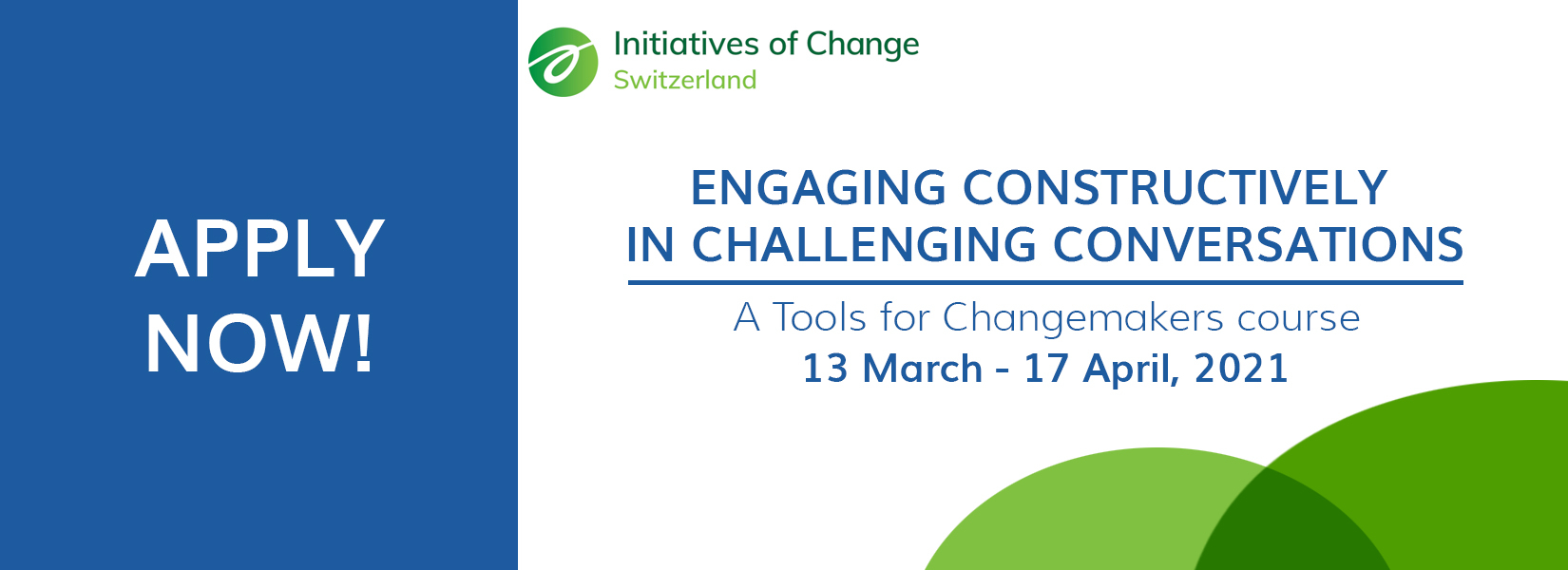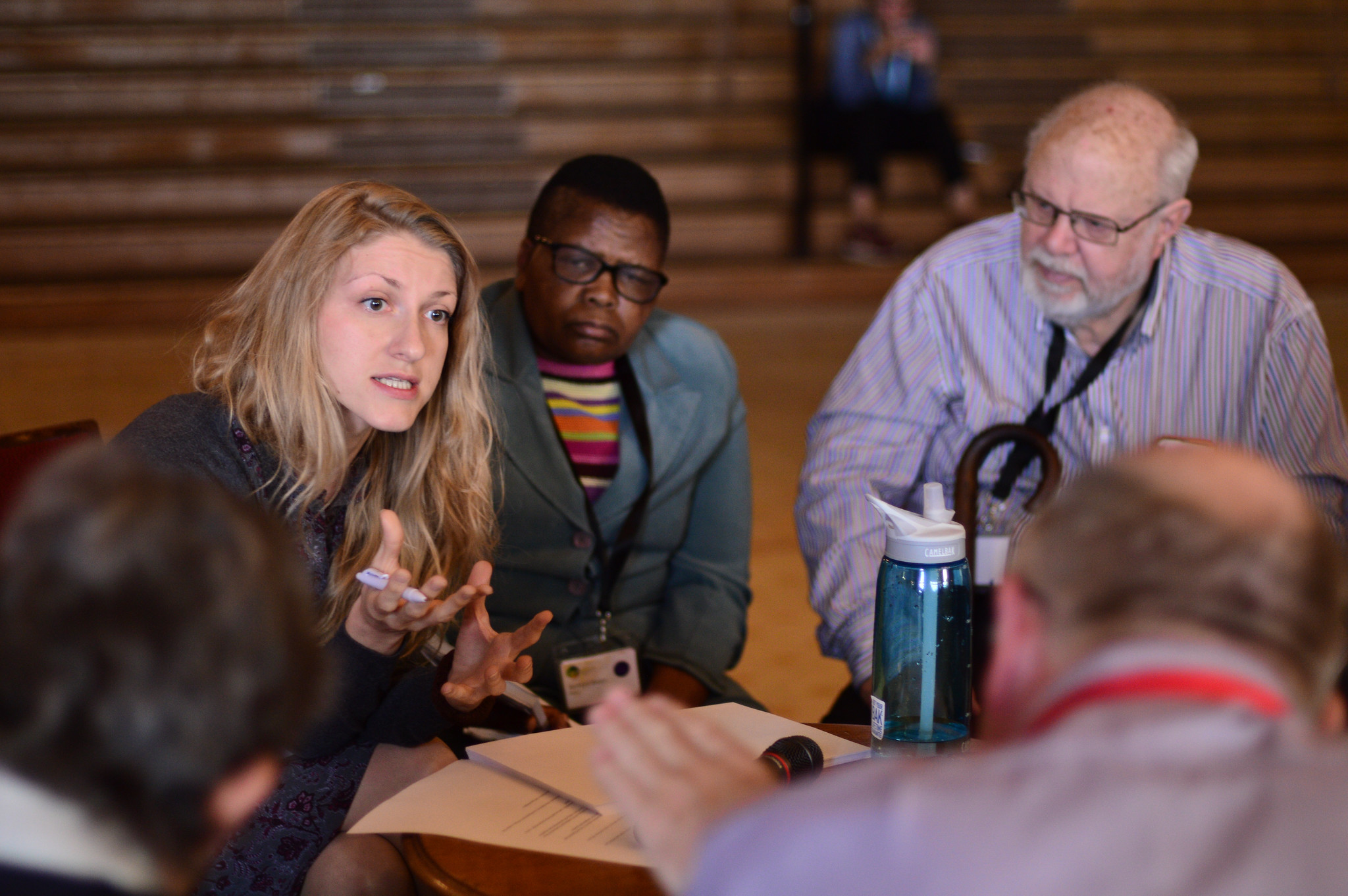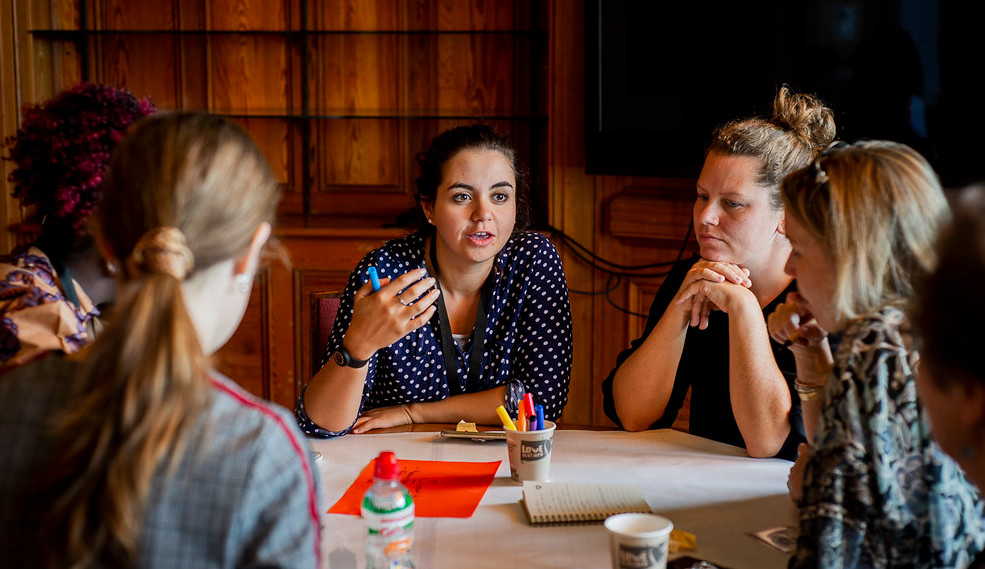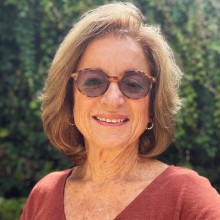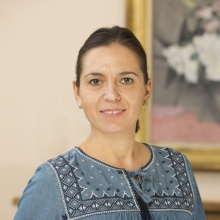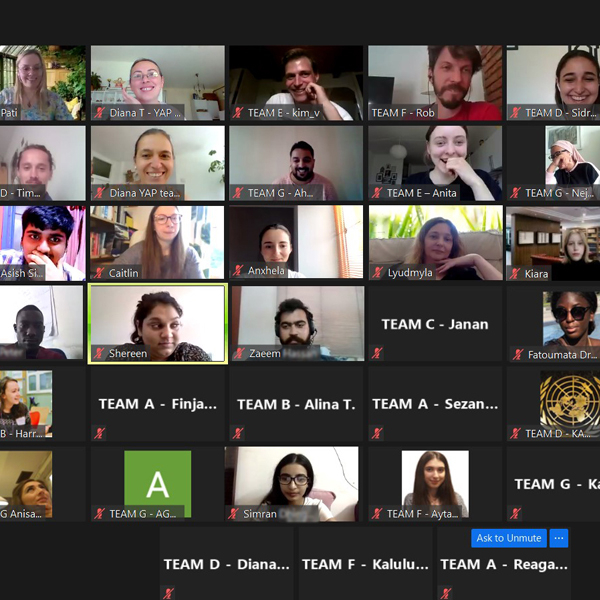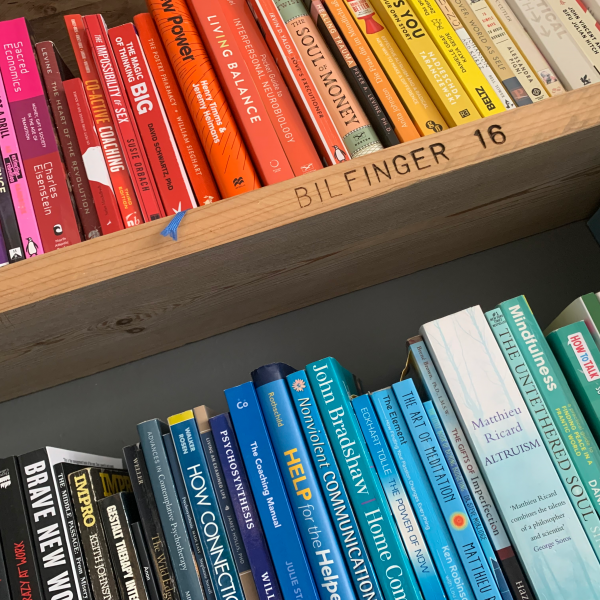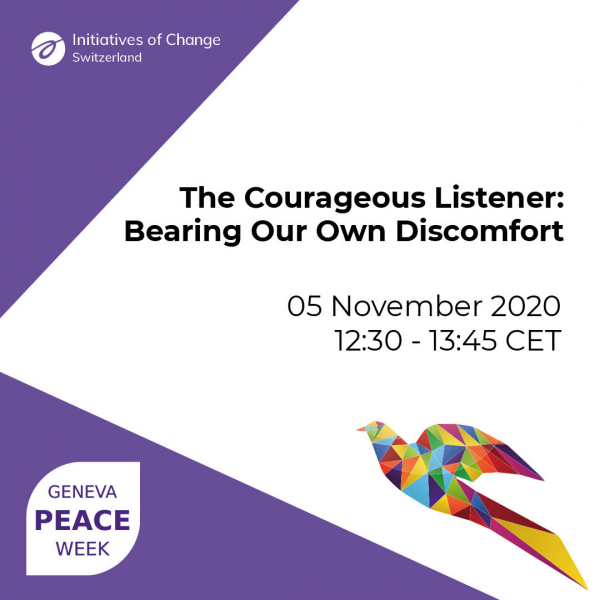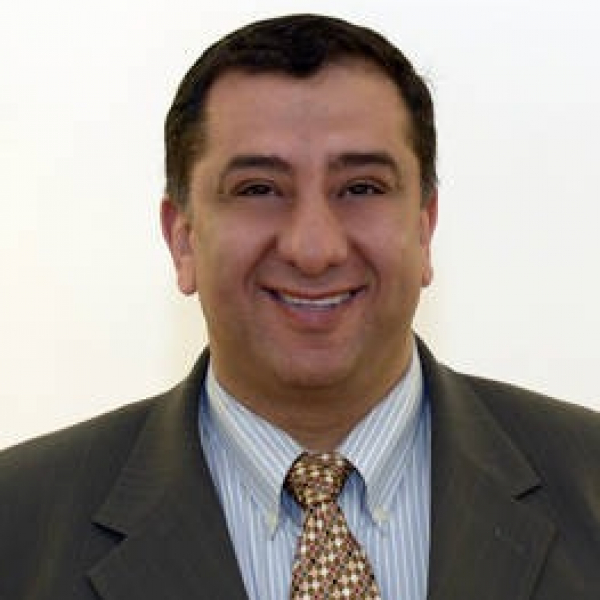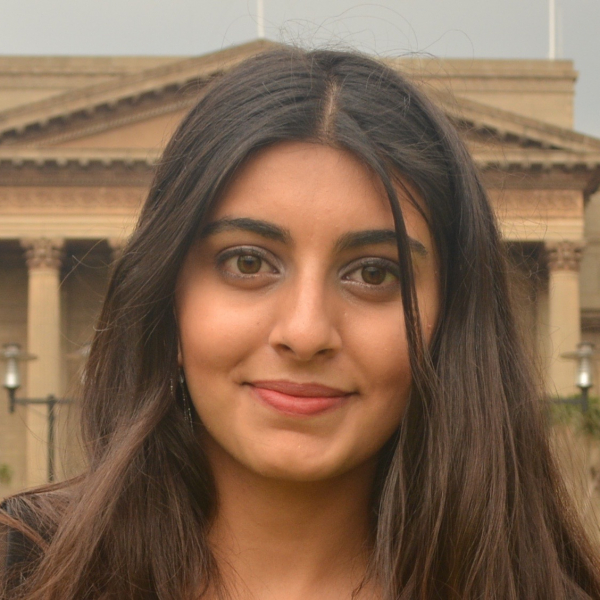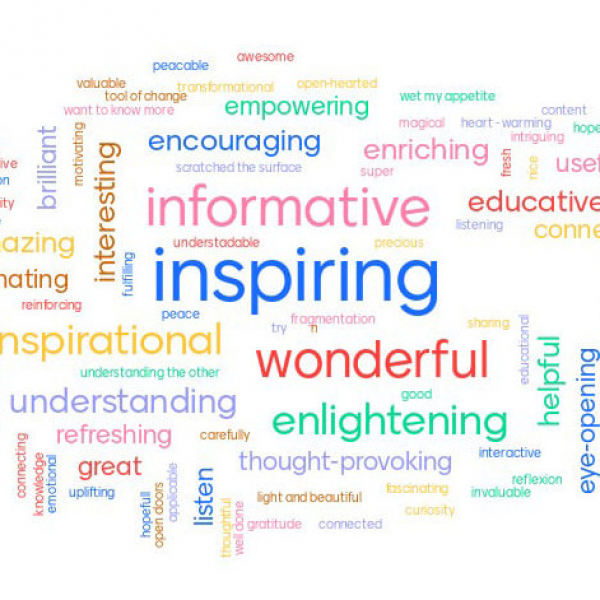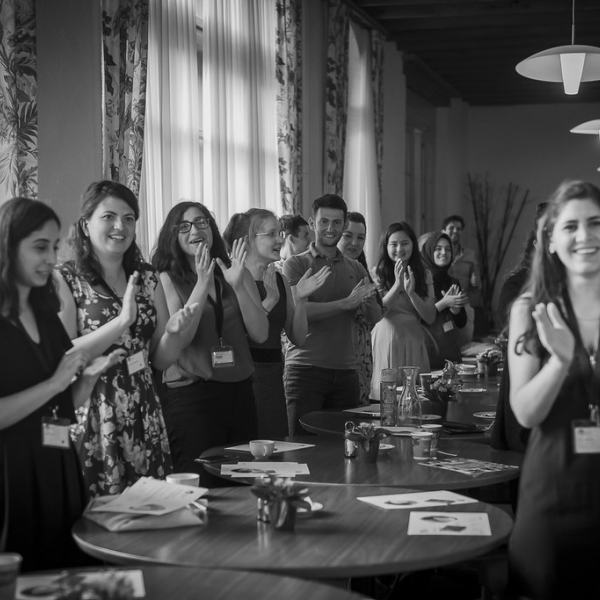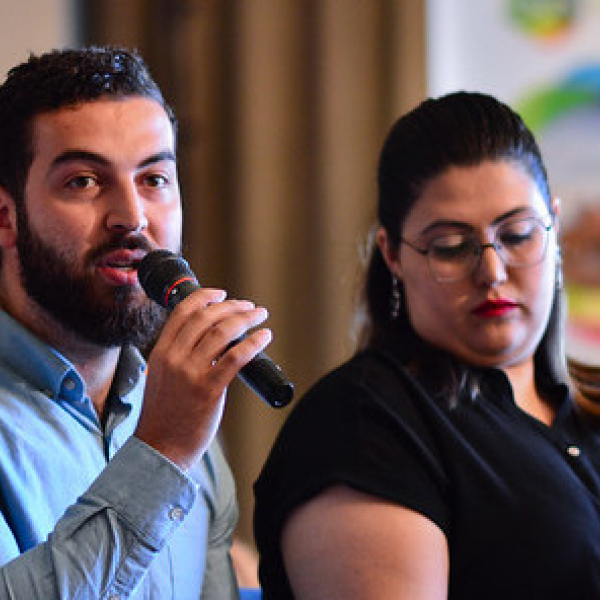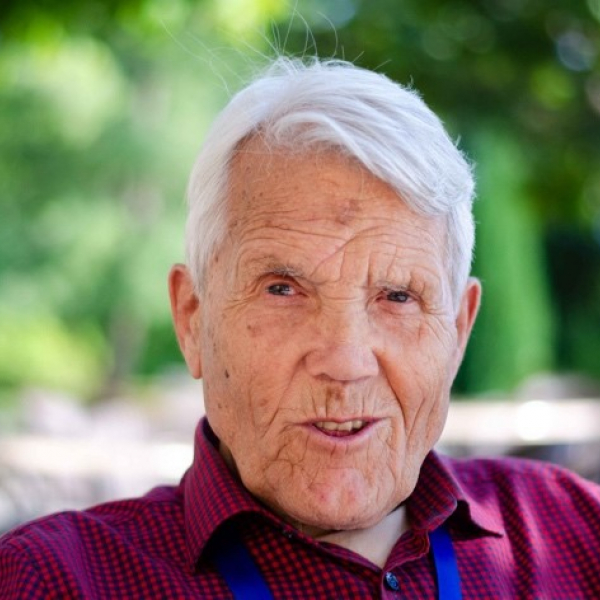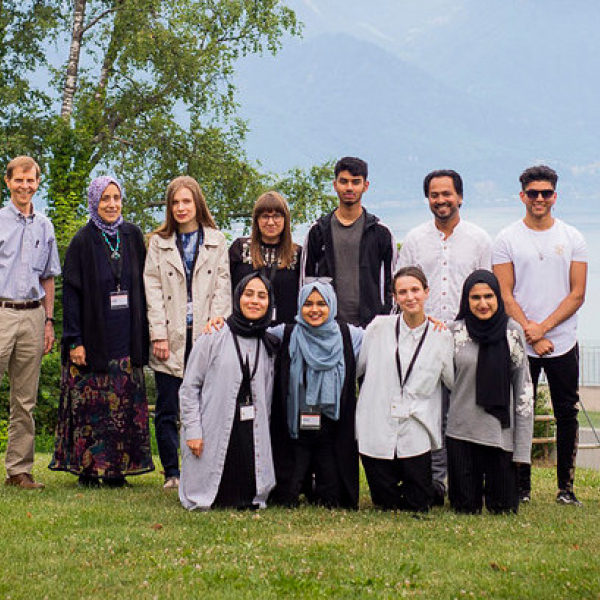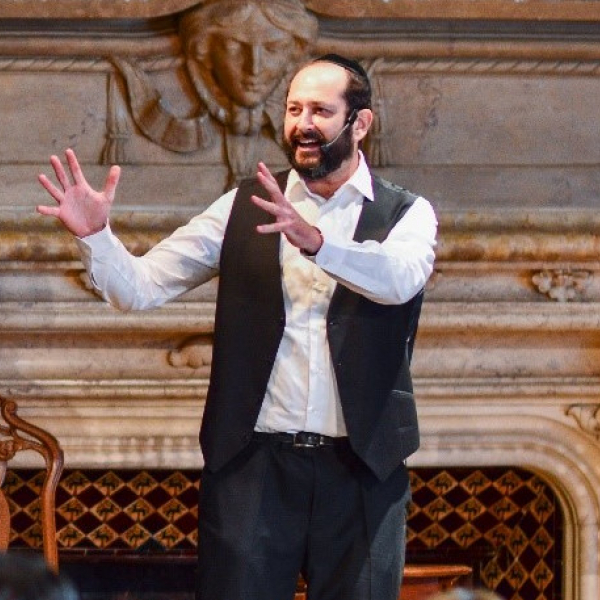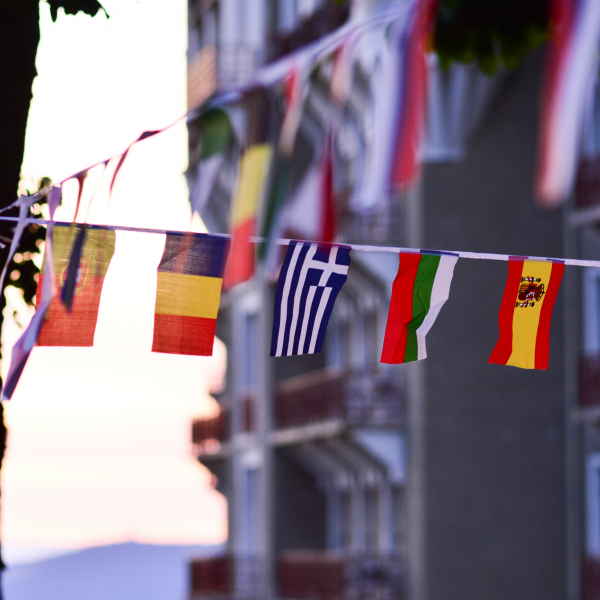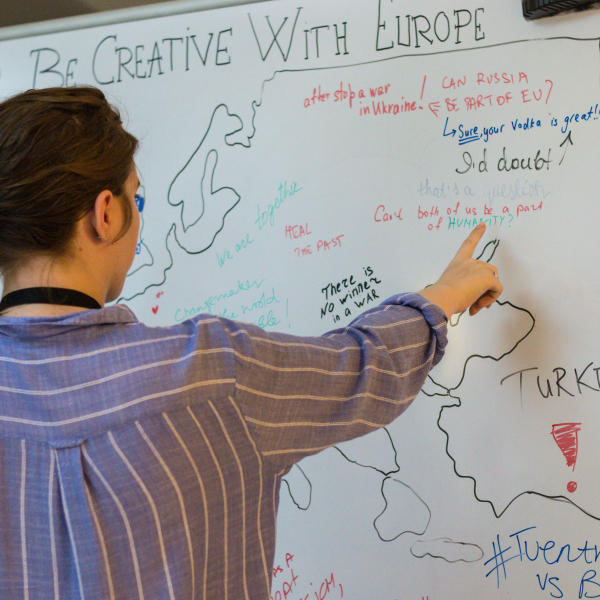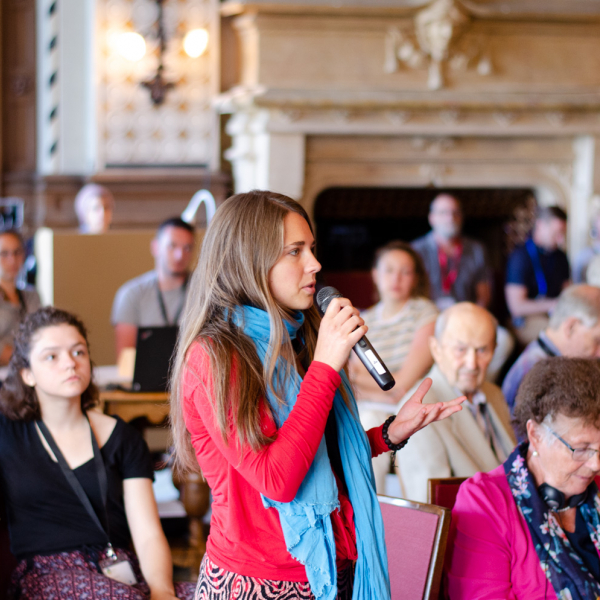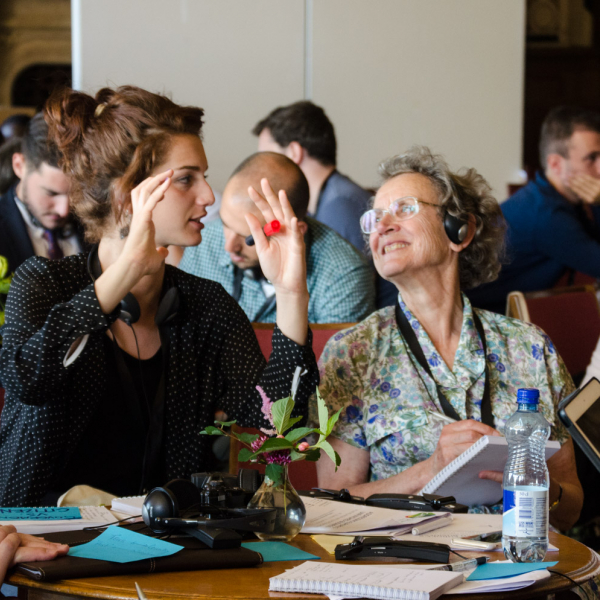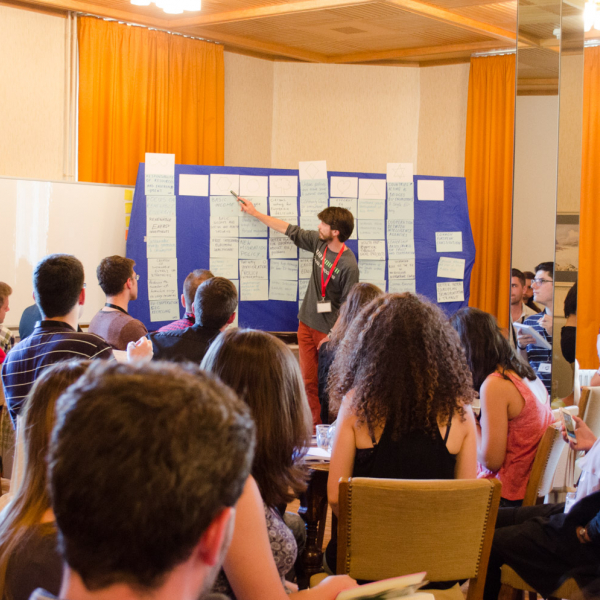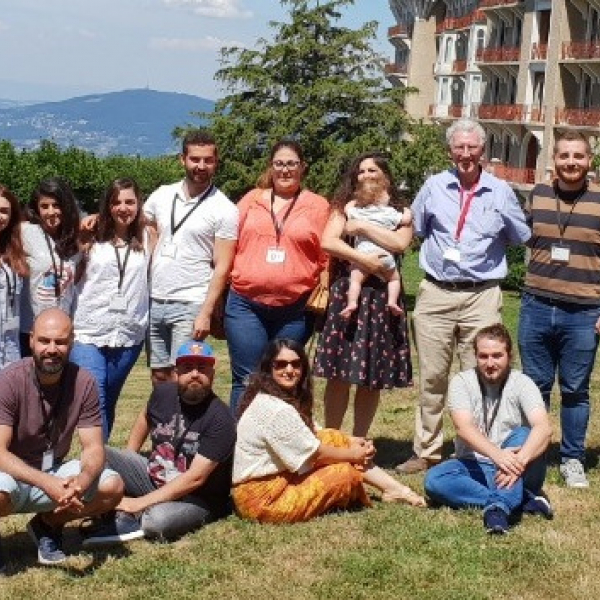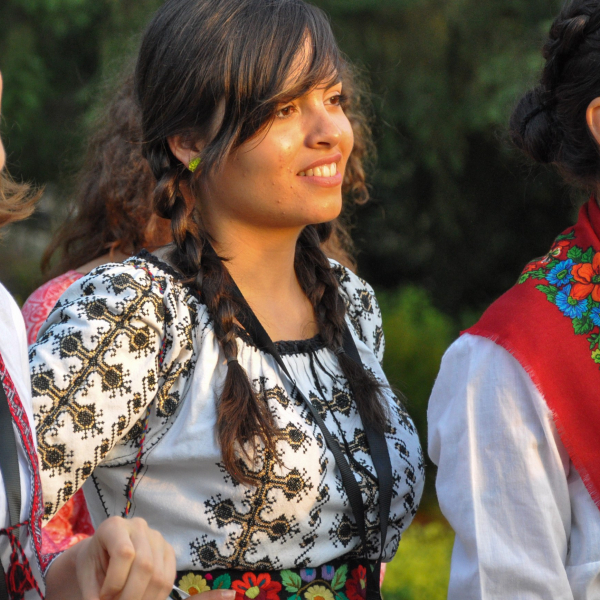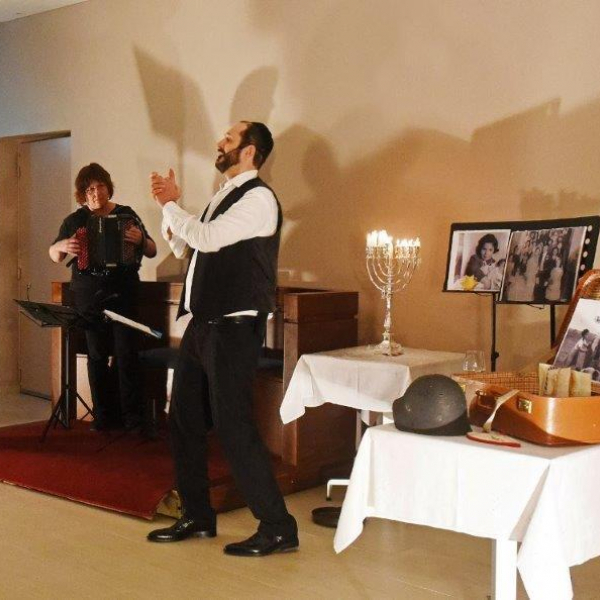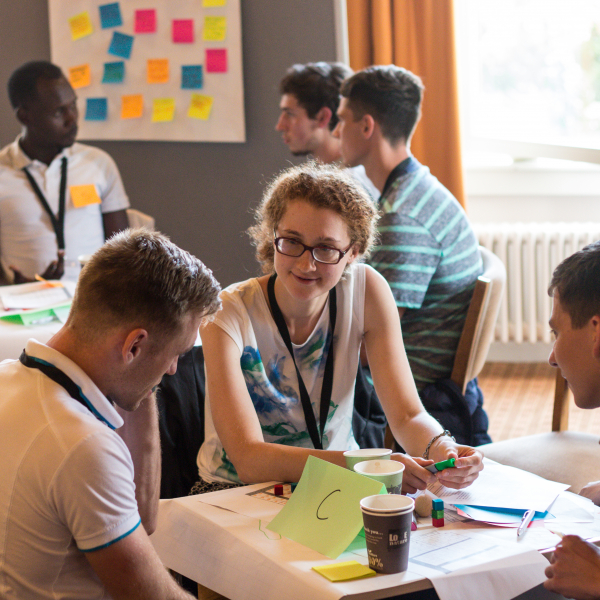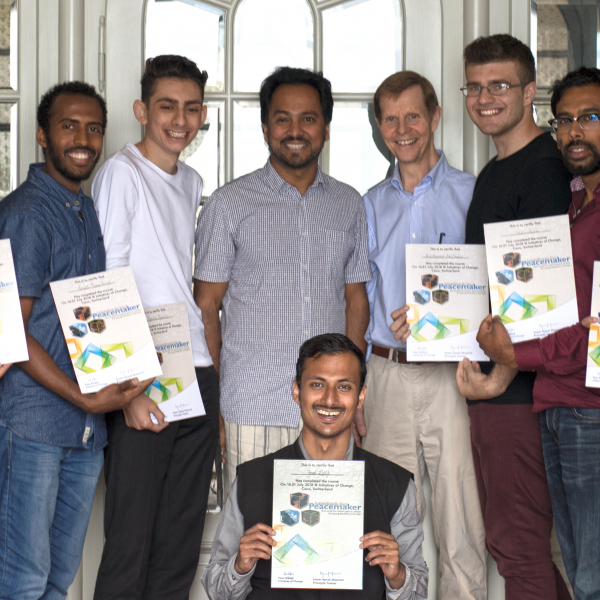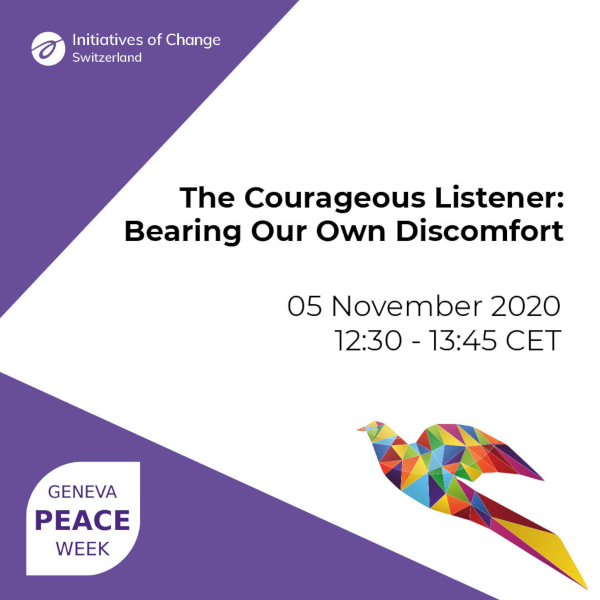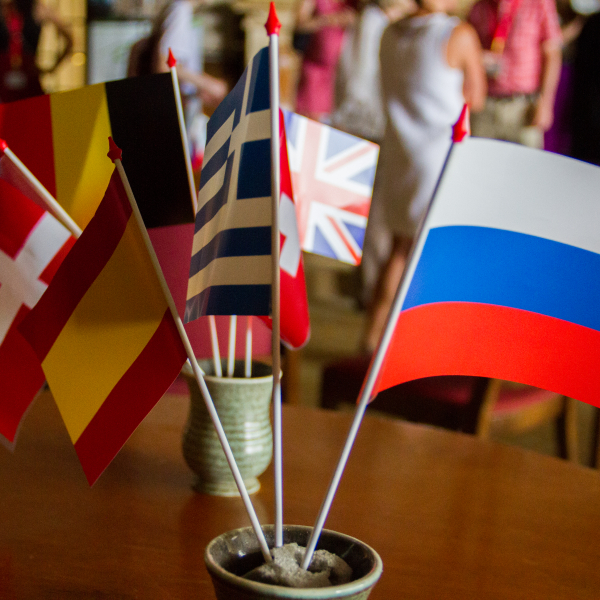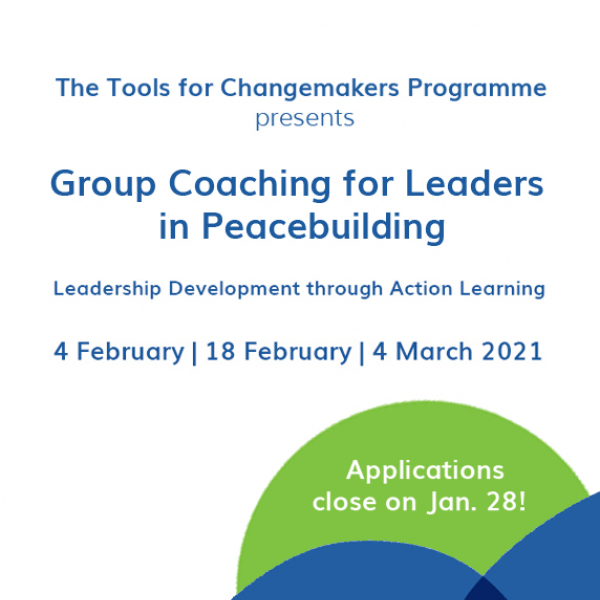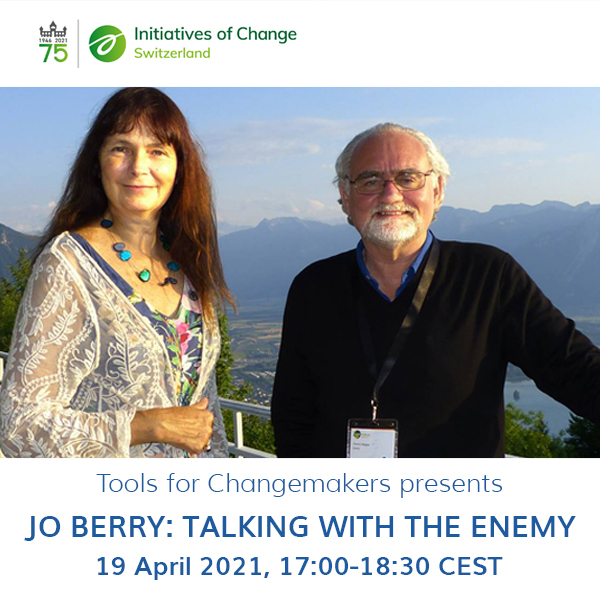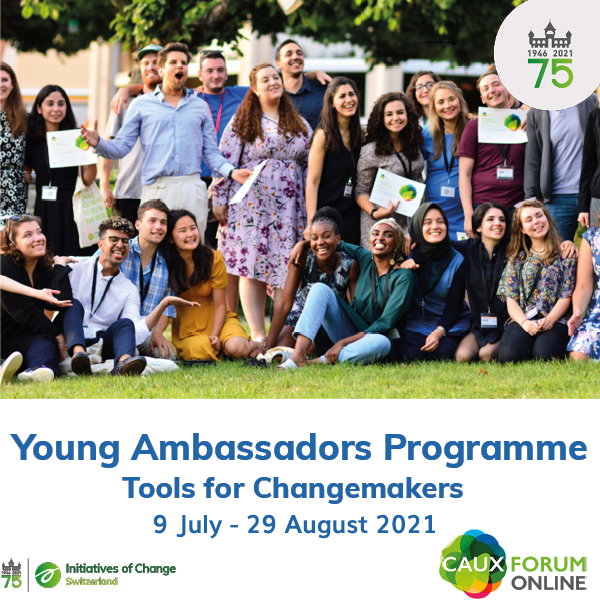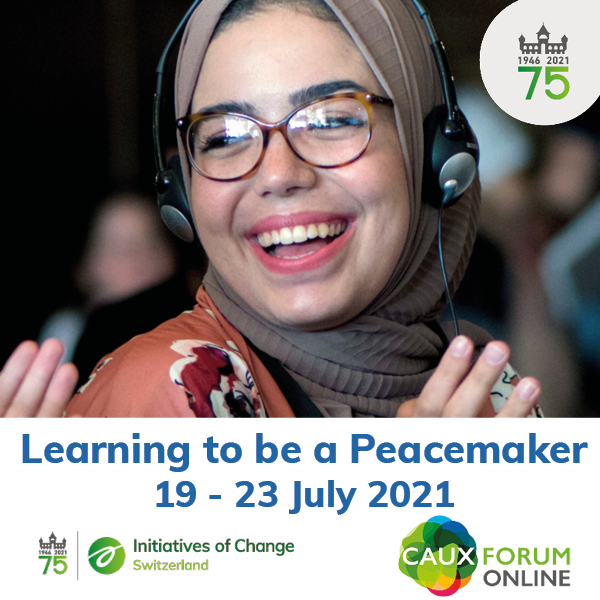Online Course: Engaging Constructively in Challenging Conversations
10:00 – 12:00 CET
We live in a world of polarized views, biased or fake news, racism, fear, hatred and disconnection. Our positions on such critical issues as climate change, refugees and vaccinations divide us. Too often we see aggression, passivity, judgement, criticism, avoidance and blame. We see people looking to sources that confirm their own views and negate opposing ones.
To develop solutions to the big challenges facing humanity in this time of division and disconnection, we all need to develop new skills: peacemakers, politicians, activists, CEOs, colleagues, friends and families alike.
Can we hear each other and come together when there is difference? Or will we continue to allow these societal challenges to disconnect us?
About the course
The online course Engaging Constructively in Challenging Conversations (ECCC) is designed to give you the skills and confidence to have constructive conversations in the midst of differences and conflicts – honest conversations that build understanding and create connection rather than separation.
When we are in conflict with someone, our quick judgements and opinions can cause separation. In these moments when we feel attacked, hurt, challenged, in disbelief, it is difficult to stay open and be curious. What we do can change the direction of these conversations. These same conflicts can bring us closer and help us develop understanding of each other.
ECCC is an experiential and practical skills course. It combines looking inward to develop self-awareness (‘peace begins with me’) and practical skills for building trust across divides.
We will invite participants to be self-reflective and curious about their own reactions, stories, values, judgements and experiences and to practise skills for effectively navigating difference and challenging conversations.
We will explore such questions as: How do we hear each other and be together when there is difference? How do we find a way to be with difference and work with it? What might be preventing us from being curious about the other? What are we attached to or afraid of? How do we effectively share what’s important for us?
Who is it for?
If you recently (or have sometimes)
- found yourself in a conversation where something was said that made you uncomfortable or that you strongly disagreed with
- stayed quiet and wished you hadn't
- became defensive or aggressive or reacted in ways you wished you hadn't wondered if your passion about what’s important to you is pushing others away
- moved away from someone with views or behaviours that you don’t like or don’t agree with
- wished you had an alternate way to engage and express what’s important to you
then this course will be valuable for you.
What are the ECCC course goals?
The main goals of the ECCC course are to equip participants to:
- better understand their habitual reactive responses
- sit with difference and the experience of being challenged by others’ opinions and values or behaviours
- engage with others and explore their perspectives
- listen deeply for what is important both for themselves and for others
- have the confidence and the skills to speak up in ways that they feel good about.
When and where
The ECCC course will be offered as a four-session package on
- March 13
- March 20
- April 10
- April 17
for two hours at a time (10:00 – 12:00 CET).
The sessions will be held in English, without translation. Commitment to participate in all sessions is essential. This is an online course, hosted on Zoom.
What previous participants say
‘What landed most for me was being utterly fascinated by what people say – less chance of being triggered, opens the door to genuine curiosity.’
‘The effect for me is more self-awareness and being conscious of when I'm about to be triggered – and trying to recall de-stressors, and a more expansive outlook. I feel way more equipped now.’
‘In multiple conversations when people have different opinions or ways of life, I am more curious and less judgemental.’
‘I have noticed in myself that my intention was to do the right thing and avoid unnecessary conflict. Swallowing emotions for decades is apparently unhealthy. Who knew!’
‘Thank you for reinforcing those oh so important skills and also the deeper learning of self-discovery. I have been so much more conscious of my conversational interactions and it has felt quite satisfying to deconstruct what has worked and what has not and why.’
Facilitators
Shoshana Faire / Australia
Shoshana Faire is passionate about peace and what it takes to create peace. She began her journey on this path as one of the Co-founders of the Conflict Resolution Network, which was established in Australia in 1986 to develop and spread skills for handling conflict. She is co-author of the best-selling book Everyone Can Win – Resolving Conflict Constructively, published in six languages. Shoshana has delivered over 1,250 workshops in corporate, government and community contexts on a range of skills that contribute to better relationships, teams and meetings. She is a guest lecturer at the University of Sydney’s Department of Peace and Conflict Studies, where she runs workshops on practical skills for conflict conversations and collaborative approaches to advocacy. Shoshana has been actively involved in Initiatives of Change (IofC) since 2010 and is currently an International Coordinator for Creators of Peace. She develops and mentors women internationally in becoming peace creators and Creators of Peace Circle facilitators.
Diana Damsa / Romania
Diana Damsa holds degrees in law and music and has pursued postgraduate studies in Healing of Memories and Intercultural and Interfaith Communication. In 2004 she was inspired by IofC’s message that change in the world starts with change in oneself; she has been active in several IofC programmes since then. In particular, she has been involved with Foundations for Freedom in various capacities both as a member of the management and coordination team, and as a designer and facilitator of youth and leadership programmes, and of interethnic dialogues in Ukraine and Romania. She is currently the Managing Director of Tools for Changemakers, and the Vice-President of Creators of Peace.
Cost
-
Standard price: 300 CHF (for professionals supported by their company, organization, etc)
-
Reduced price: 150 CHF (for individuals)
-
Scholarships: A limited number of scholarships are available. If you are interested in applying but cannot afford to pay the course fee, please fill in the form where you will have the opportunity to inform us about your circumstances.
Contact
For more information contact us here.
"Engaging Constructively in Challenging Conversations (ECCC)" is part of the Tools for Changemakers programme of Initiatives of Change Switzerland.
